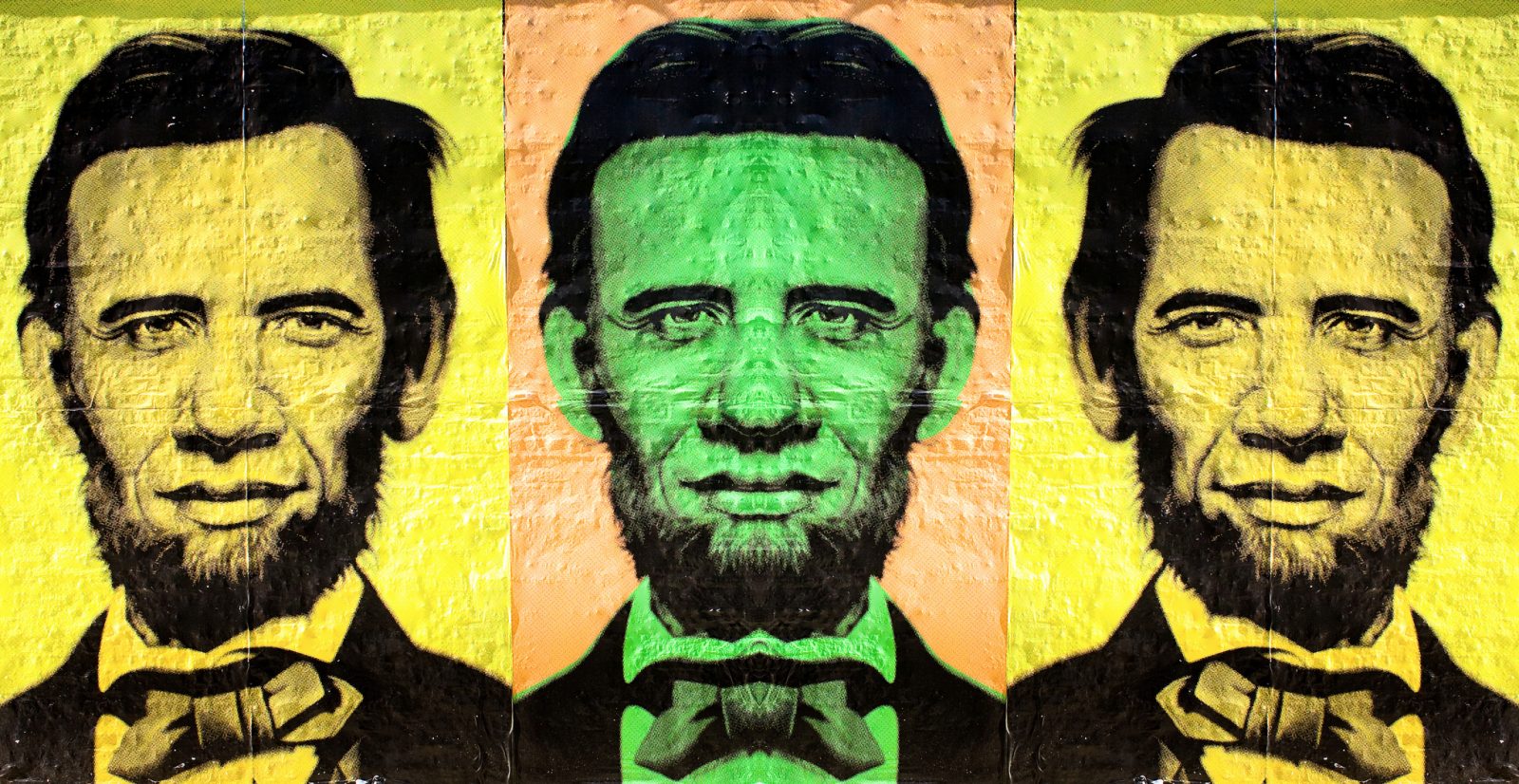Socrates, as quoted by Plutarch, said, “I am not an Athenian or a Greek, but a citizen of the world”, and added, “Bad men live that they may eat and drink, whereas good men eat and drink that they may live.” This sentence has been kept in peoples’ mind for the last hundreds of years. This provokes many of them try to explore and give deepest meaning to it even today. They have two ways to try to explain this problem: (1) spiritual belief: Eat to Live and (2) materialistic belief: Live to Eat. The answer is open at all ages, depending on which way the people need to prove it.
Media shapes the reality and life, but media is also money. Big money! The ubiquitous media (press, photography, radio, television, cinema, theatre, advertisement, Internet) let the contraction of the world. The information highway took away the sense of space and time. It is difficult today to understand the meaning of words and terms in the information technology. Most of the people prefer to watch than to create. News and show media, as well as the entertainment media (films, computer games), do not pass in that case without being noticed, because this is ‘water on their mill’. It is another ‘bag of money’ in the ‘treasure-house’. It came into being ′perpetuum mobile′, because the people need media for working, and the media needs people’s money to exist. I agree that public determines media products (news and entertainment) to create modern society, but sometimes the public has ‘the last voice’ in the case of media product; this is why it’s so difficult to say univocally who determines media: media producers or public demand.
Today, media universe is controlled by six corporations: Sony, Time Warner, NBC Universal, Viacom, Disney, and News Corporation. This Universe of ‘The Big picture’ industry creates money, power, and prestige. However, money is only part of the Hollywood story. The social and political power and status in present society is another part of the Hollywood world. Media determines today’s people-needs. Hollywood is one of the present institutions that create the modern society, especially the young generation of people.
When analyzing the functions of the media, one can distinguish four basic needs of the recipients regarding the mass media: “(1) they are a form of escape, at least for a moment, from dullness and monotony of life; (2) they fill the void, since fictional characters keep us company and they help to establish relations with other people by providing the topics for discussion; (3) they provide the source of information on current events, which are interesting for the recipient (media as a window on the world); and (4) they function as symbolic indicators of certain values, due to which an individual accomplishes the process of self-identification and identification with a particular social and cultural group.”[1]
Many older generation people accept changes with resignation. This was understood by Disney, who directed his ‘animation world’ to the young people, who accepted the same changes with fascination. With no anxieties, the young generation approaches to computers without fear. They accept all that is new. Usually, the same young people, who have troubles at school, can operate even very complicated computer systems with much ease. The young generation is most susceptible to media influence. They accept everything that media provides without any critical outlook. They believe in everything what the movies show. Meanwhile behind the notion of the film stand thousands of people whose activities are often connected not with the art, but only with the money. However, indirectly everyone is concerned about money, as Walt Disney said: “I don’t make pictures just to make money. I make money to make more pictures.”[2]
In the Epstein’s book, ‘The Big Pictures’, he introduces us to the visionaries: Walt Disney, Lew Wasserman, Steve Ross, Akio Morita, Rupert Murdoch, Sumner Redstone, and David Sarnoff. The power these people have, entered innovation and deception, created and controlled the media that demand our lives until today. They changed human life, because the new media conglomerates are everywhere and anywhere, as Jenkins said: “controlling interest across the entire entertainment industry. Warner Bros. produces film, television, popular music, computer games, web sites, toys, amusement park rides, books, news-papers, magazines, and comics.”[3]
It is visible that a human being is becoming more and more addicted to the pictures in mass media. As I said in the beginning of this paper, sometimes the public has ‘the last voice’ in the case of media product. The law of demand offers, which is taking advantage of continuous yearning for taking, rooted in every person, is a superior power. In today’s world, only what the viewer is an interested matter. And again, it all can be brought down to a simple scheme: masses are demanding, we are giving them what they want. Advantages: masses have what they want although they are manipulated quite frequently; the media receive money in such a way, which helps them to produce programmes, which, in turn, will be watched by people – a vicious circle. Creating such susceptibility to particular images can, as a result, increase susceptibility to any human suggestions in general, and therefore, the broadcaster has considerably less problems with imposing given opinions and ideas upon large communities than in the case when the susceptibility to other influences is smaller. In such a way the spirit of the nation is diminishing and is being replaced with a mixture of unfamiliar products.
Consequently, the influence of media is slowly changing the thinking and mentality of the people. Epstein said: “Nor is it surprising that the culture of deception is so deeply entrenched in Hollywood. The industry, after all, derivers much of its wealth and power from its ability to create convincing illusion in the form of movies and television programs – even so called reality shows – that entertain audiences worldwide. Furthermore, to realize their full profitability, these illusions must be sustained in other products – such as videos, games, theme-park rides, and toys – for year, if no decades.”[4]
A human being does not live alone, but among other people, by creating society, which, in turn, produces their own culture created today by media. Man and only man is an originator and the creator of culture. Man and only man can express himself in culture and he confirms himself there as well. Producers and the public need to remember, that money is only a part of our life. The truth about Socrates’ sentence: “I am not an Athenian or a Greek, but citizen of the World” gives us some answer to the connotation of media and public demand. If some people begin to think and act as if they are just travelers in this world without giving a thought to the future, indulging themselves in the momentary pleasures of this world following the philosophy of the Epicureans who said, “Eat, drink and make merry, for we do not know what is in store for us tomorrow” are like the ones who opt for “Live to eat”.
However, we cannot deny the importance of food, drink and entertainment in our life. The trouble begins only when we consider them as the ultimate purpose of life, forgetting other finer aspects of life like love and care for others, sharing things with others who need our help, coopering with others to build a better world, etc. We have to strike a healthy balance between “live to eat” and “eat to live”. Similarly, the power-play between the media and money too have to strike a semblance of sanity – using media to inform, instruct and entertain the public and the public, on the other hand, will provide with the material support that the media needs to keep it going.
—————————-
[1] A. Lubecka. (1999). Jak reklama tworzy i odzwierciedla kulturę? Krakow. In A. S. Barczak, A. Pitrus (Ed). Ze świata reklamy. p. 55. (translation by myself).
[2] Edward Jay Epstein. (2005). The Big Picture. Money and Power in Hollywood. New York, p. 245.
[3] Henry Jenkins. (2006). Convergence Culture. Where Old and New Media Collide. New York. p. 16.
[4] Edward Jay Epstein. (2005). The Big Picture. Money and Power in Hollywood. New York, pp. 309-310.











